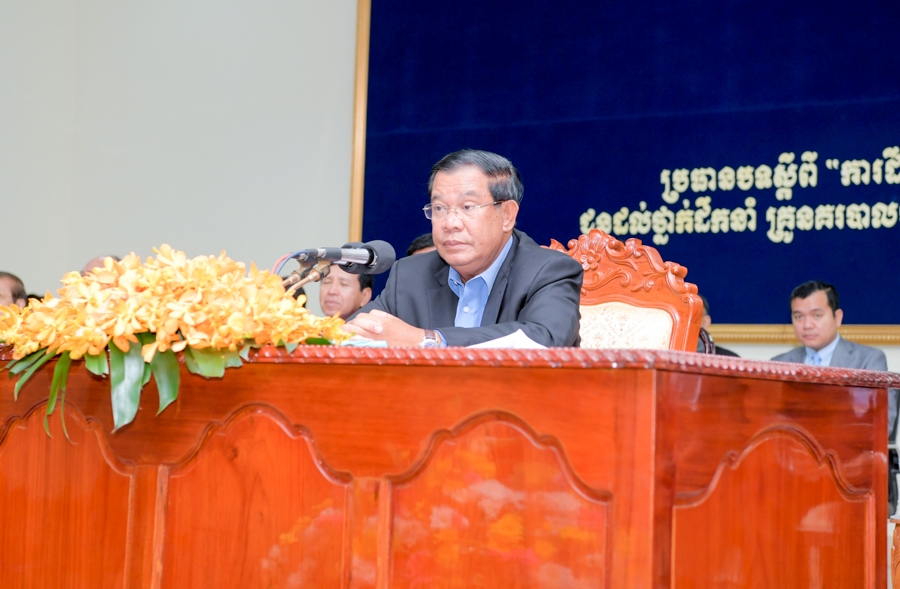Australia’s efforts to move detained refugees off Nauru and Manus island hit another snag yesterday with reports of US President Donald Trump’s reticence to accept a deal that would see many of the asylum seekers go to America.
Officials from both countries claimed the phone call between Mr. Trump and Australian Prime Minister Malcolm Turnbull on Saturday went well and reaffirmed both leaders’ commitments to preserving the longstanding relationship between both nations.
“The deal specifically deals with 1,250 people, they’re mostly in Papua New Guinea, being held…there will be extreme vetting applied to all of them as part and parcel of the deal that was made,” government spokesman Sean Spicer told the White House press corps earlier this week.
“The president, in accordance with that deal to honor what had been agreed upon by the United States government…will go forward.”
But yesterday, the Washington Post reported that the call was far from cordial, with Mr. Trump severely criticizing the refugee deal and criticizing Mr. Turnbull.
“Do you believe it? The Obama administration agreed to take thousands of illegal immigrants from Australia. Why? I will study this dumb deal!” Mr. Trump wrote on Twitter yesterday morning.
He had much harsher words for Mr. Turnbull during their call, reportedly telling the Australian prime minister that he “didn’t want these people” and that it was the “worst deal ever.” He slammed Australia for what he said was its attempt to send the “next Boston bombers” to the US, referencing the Boston Marathon bombing in 2013 that killed three people and injured hundreds.
Mr. Turnbull told the Australian press after the call that Mr. Trump had agreed to honor the deal, which was set up by the Obama administration late last year before he left office and would see up to 1,250 refugees moved to the US.
But the Washington Post quoted several senior US officials who said it was a “hostile and charged” conversation that ended abruptly after 25 minutes.
Mr. Turnbull allegedly attempted to change the topic of conversation to military efforts in Syria, but Mr. Trump hung up on him. All of Mr. Trump’s calls with other foreign leaders that day had lasted one hour or more. He reportedly told Mr. Turnbull that it was the “worst call by far.”
Reports of the call are contrary to Mr. Trump’s previous actions, which included sending US officials to interview refugees on Nauru and Manus island. Mr. Trump even added a clause to his controversial ban on any immigrants from seven Muslim-majority nations, making an exception for “pre-existing” international agreements in reference to the deal with Australia.
However, Mr. Trump allegedly left room for the US to back out of the deal, with senior officials saying he told the Australian leader that it was his “intention” to abide by the deal, a term they said was specifically used to give him leeway.
Australia has spent years attempting to offload the refugees being held on the Pacific island nation of Nauru and Manus island in Papua New Guinea and there have been persistent reports of deplorable living conditions, sexual violence and lackluster healthcare at the camps.
Almost 1,900 refugees are being held on Nauru and Manus island, with many of them coming from Iran, Iraq, Somalia and Sudan – all countries mentioned in Mr. Trump’s executive order.
Australia struck a deal with Cambodia in 2014 to take some of the refugees, but many refused to come. Those who did take up the offer reported poor conditions and widespread mismanagement of the resources they were promised.
All but one of the handful of refugees who came to Cambodia returned to the countries they fled and Cambodian immigration officials have refused to comment on reports of three Iranian refugees allegedly slated to come to the kingdom this year.
The refugees held on Nauru and Manus island are now stuck in limbo, waiting to see what Mr. Trump will do or say next. Despite the president’s criticism of the deal and tough talk to the Australian prime minister, a US embassy spokesman in Australia told the Guardian that “President Trump’s decision to honor the refugee agreement has not changed.”
This article was printed in Khmer Times on February 3, 2017: https://www.khmertimeskh.com/news/35073/trump-criticizes--dumb--australian-refugee-deal/


